Singapore election: how ruling PAP scored landslide win, denying breakthrough for opposition
The People’s Action Party’s bigger 65.57 per cent vote share reflects Singaporeans’ economic fears, analysts say
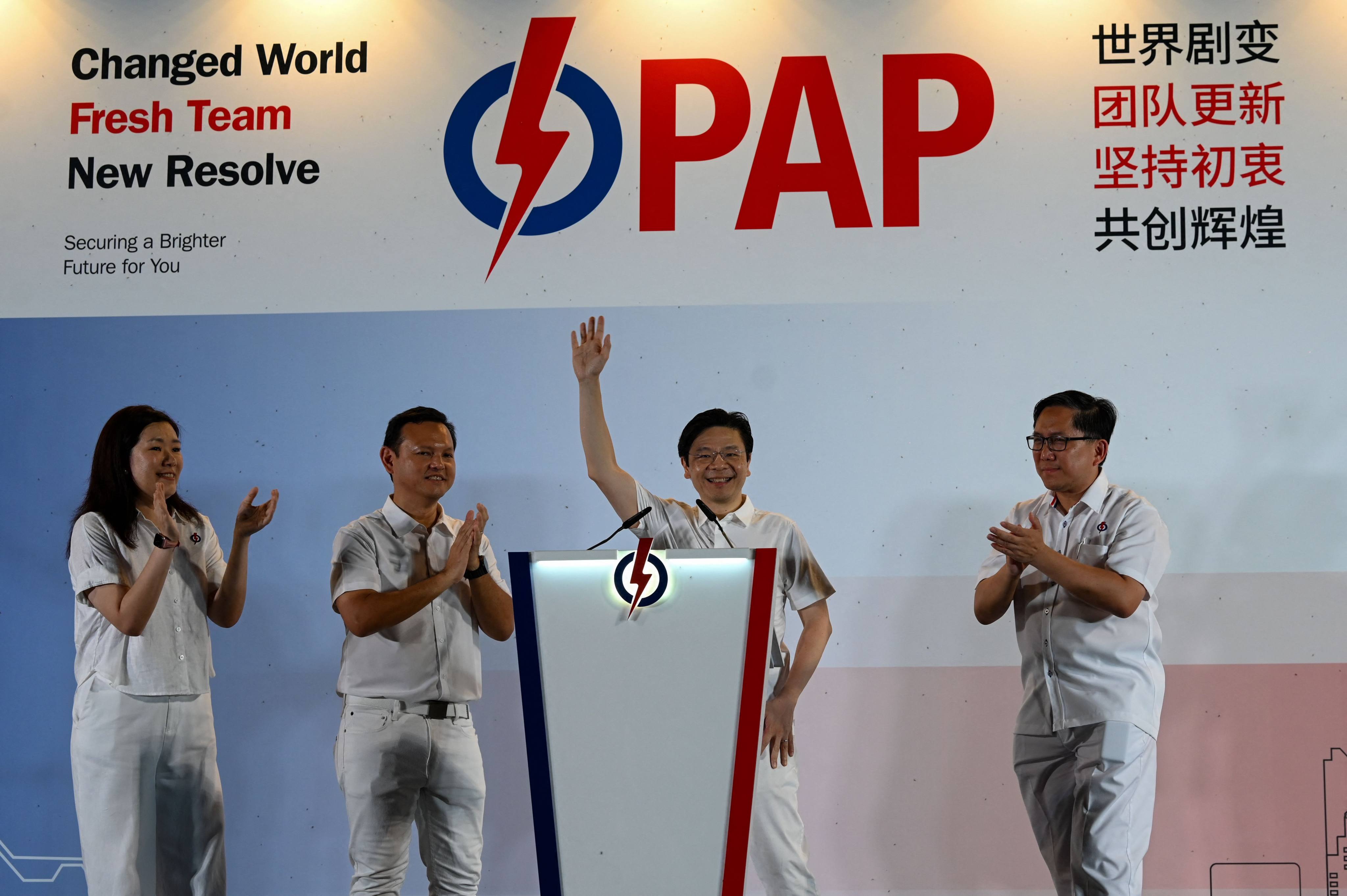
Singapore’s People’s Action Party (PAP) won the general election on Saturday in a landslide victory to secure 65.57 per cent of the vote as the opposition failed to make any breakthrough, in an outcome analysts said reflected voters’ worries about an economy hit by global turbulence.
The PAP’s vote share marked a reversal of its 2020 figure of 61.24 per cent, with six group representation constituencies (GRC) and four single seats scoring at least 75 per cent for the ruling party. Three of them won at least 80 per cent of the vote.
The resounding numbers gave Prime Minister Lawrence Wong a powerful mandate he had sought in his maiden test leading the party at the national polls.
“I am deeply humbled and grateful for the results. Singaporeans have given the PAP a clear and strong mandate to govern,” Wong said at a 3am press conference.
“It’s a clear signal of trust, stability and confidence in your government. Singaporeans too can draw strength from this and look ahead to our future with confidence.”
Contrary to earlier projections of the opposition making headway, the Workers’ Party (WP) failed to add to its slate of 10 fully elected seats. It retained comfortably its strongholds of the multi-seat wards of Aljunied and Sengkang and the single seat of Hougang.
But the two multi-seat wards it contested that were deemed hot battlegrounds – Tampines GRC and Punggol GRC – did not fall into its fold, as it scored 47.37 per cent and 44.83 per cent, respectively.
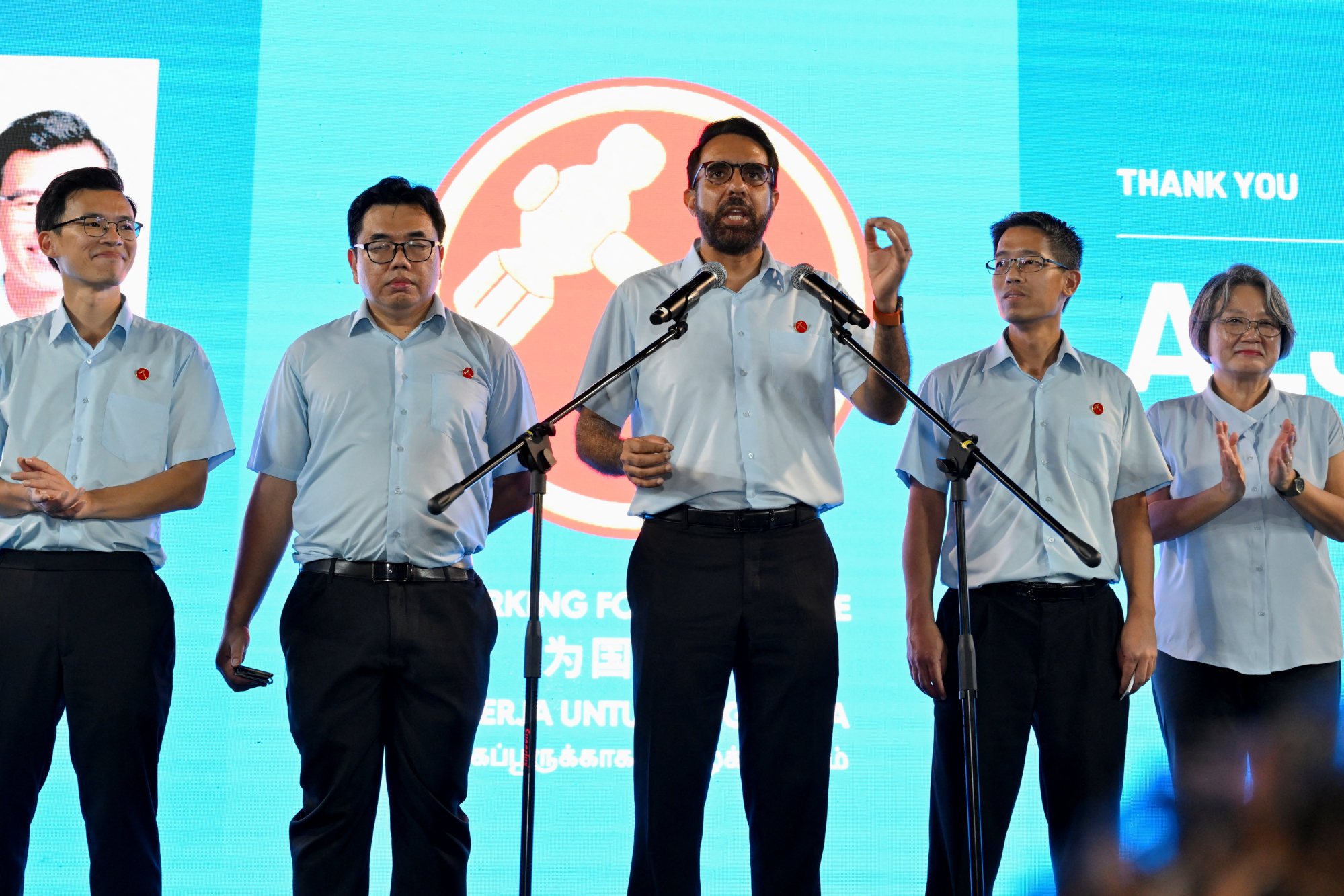
However, the WP looks set to get two of the Non-Constituency MP seats available to the “best losers”, from its share of votes in the single-seat of Jalan Kayu and Tampines GRC.
Leader of the Opposition and the WP’s Secretary General Pritam Singh told supporters: “We start work again tomorrow, and we go again.”
To rousing cheers from a sea of supporters clad in blue, he said: “Your support has been so important in the mission of achieving and working towards a more balanced parliament. That work also continues.”
Analysts said the results suggested that voters had taken a “flight to safety” and wished to retain as many PAP ministers as possible to navigate an intensifying trade war and an uncertain geoeconomic environment.
“They seem to be indicating via their vote that they would like to give the PAP an assurance that they want the party to lead the country through this period, and to retain as many ministers as possible,” said Teo Kay Key, a research fellow at the Institute of Policy Studies.
“It also would go against the previous trends of a drop in PAP vote share when there is a change in prime ministers.”
Former PAP MP Inderjit Singh said the results showed the PAP’s messaging had resonated with voters.
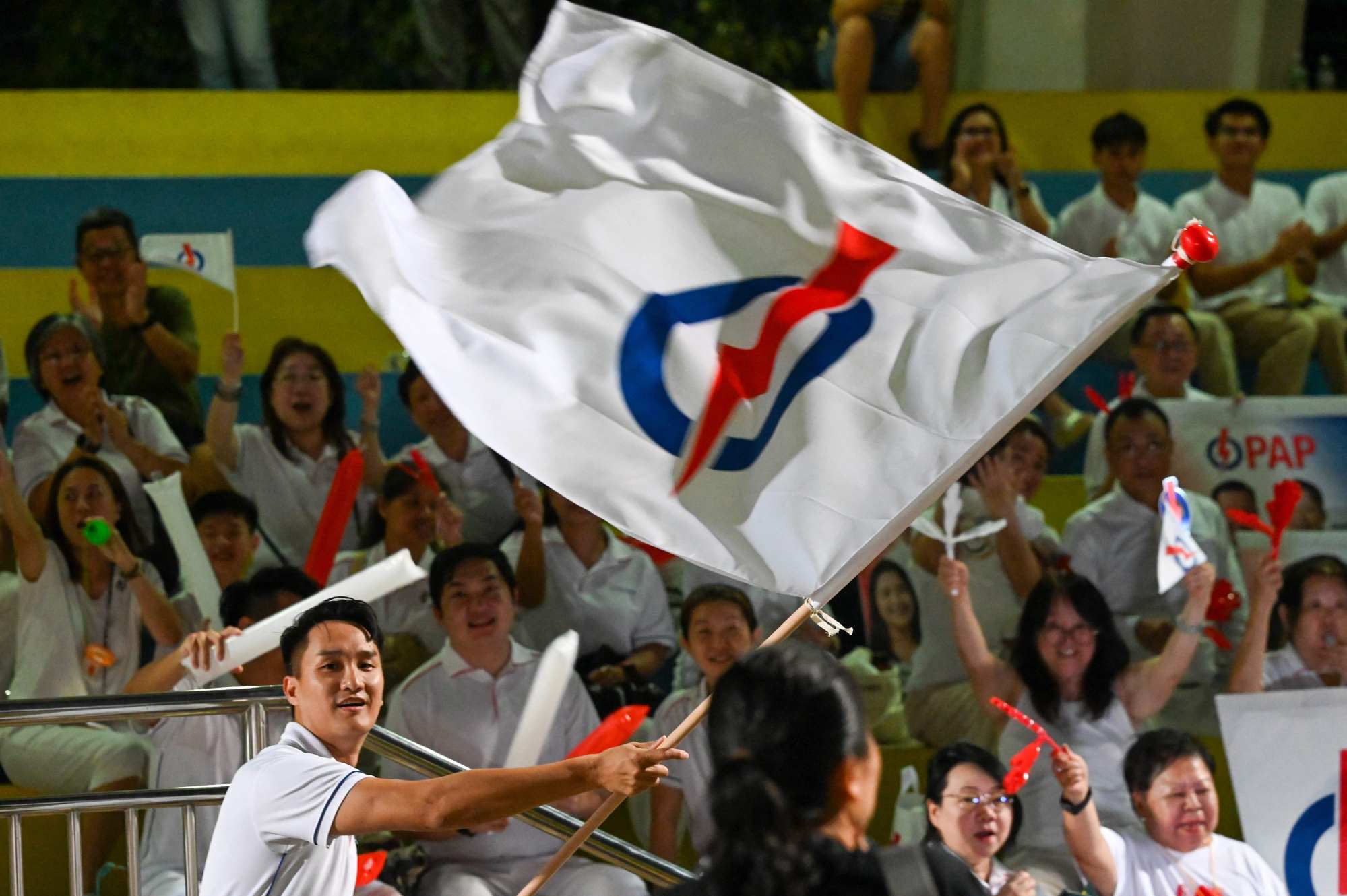
He said: “The strategy of flight to safety and scare tactics of losing important ministers worked well for the PAP.”
Singh noted that it helped that the PAP mobilised its heavyweights Senior Minister Lee Hsien Loong and Wong to campaign in the hotly contested constituencies of Tampines and Punggol, driving home the point about the need for trusted and experienced hands at the helm.
“The big guns from the PAP went to support all these tight areas and it worked.”
The closest the WP came to winning another seat was at the Jalan Kayu ward, getting 48.53 per cent of the vote against labour chief Ng Chee Meng. WP candidate Andre Low looks set to win one of the two NCMP seats available to the two “best losers” among the opposition.
At 47.37 per cent, the WP’s Tampines GRC team is the second-best loser and one of its candidates, led by former party veteran Faisal Manap, who had left the Aljunied GRC to contest the multi-seat ward, is likely to take up the second NCMP seat.
Veteran opposition candidate Chee Soon Juan, who first joined politics 33 years ago, lost out to the second NCMP seat by a whisker, scoring 46.81 of the vote.
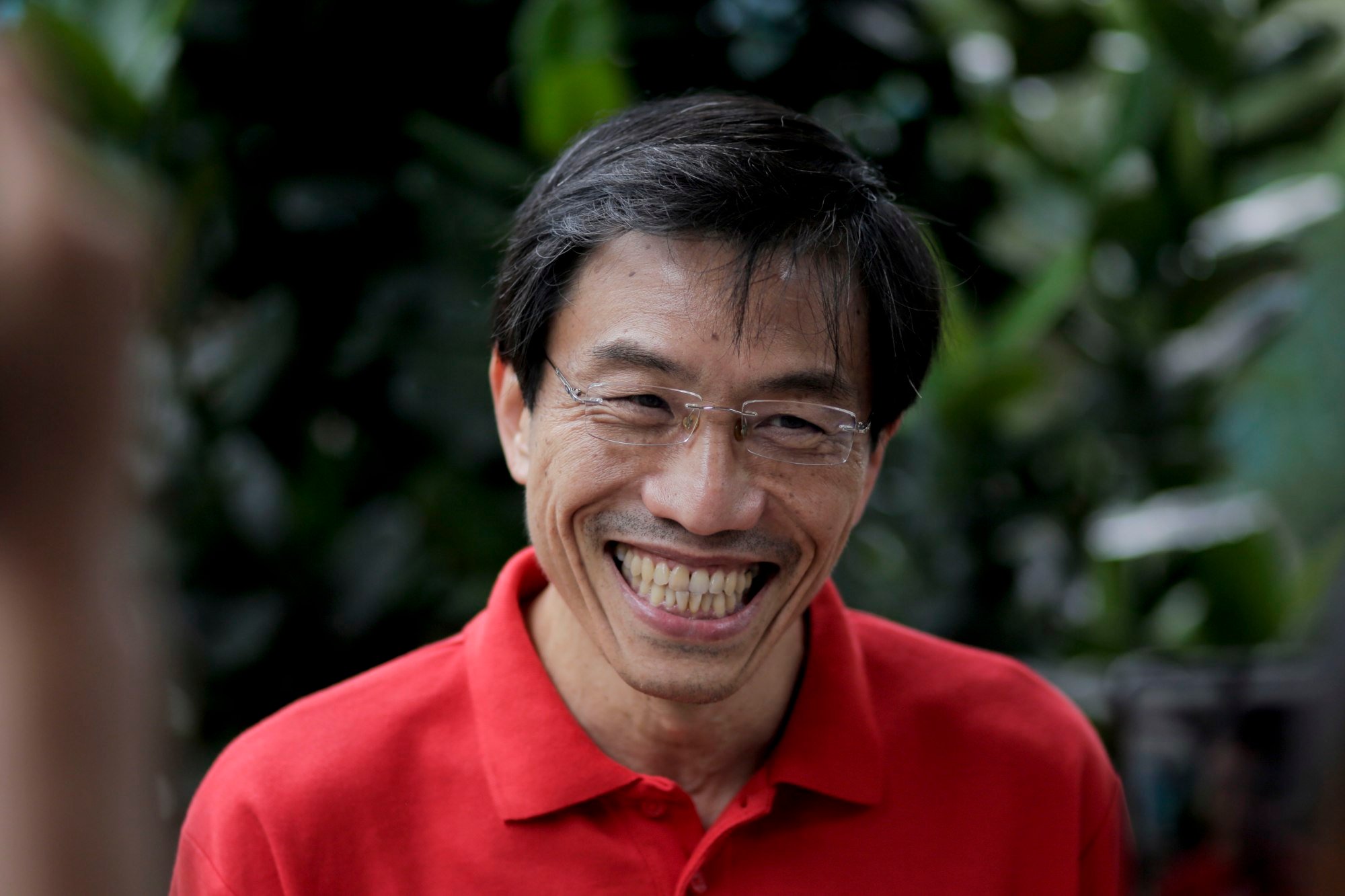
Returning Officer Han Kok Juan declared the results for all 32 constituencies in Saturday’s general election early on Sunday morning, after a feisty nine-day campaign period.
The PAP won 16 GRCs and 14 single-seat wards, with a vote share of 65.57 per cent of all votes cast.
The wins mean the PAP retains its two-thirds majority that enables it to pass bills and constitutional amendments.
The average voter turnout was 92.47 per cent, below the 94.2 per cent average turnout in parliamentary elections since 2001 in Singapore, where voting is compulsory.
The election is the city state’s 14th general election and was widely seen as a test for Prime Minister Wong, who took over from his long-serving predecessor Lee Hsien Loong less than a year ago.
Wong has performed creditably when compared to his predecessors since founding prime minister Lee Kuan Yew at their first outing as leaders helming a general election. In 1990, Goh Chok Tong led his party to victory with 61 per cent of the vote and in 2006, Lee Hsien Loong won with 66.6 per cent of the vote in his first general election as prime minister.
With Saturday’s resounding victory, the PAP, which has ruled for 66 uninterrupted years since 1959, will make it to the history books as the world’s second longest-running ruling party. It will come close to matching Mexico’s Institutional Revolutionary Party (PRI)’s record, which led the country for 71 years, until 2000, before returning for a spell in 2012.
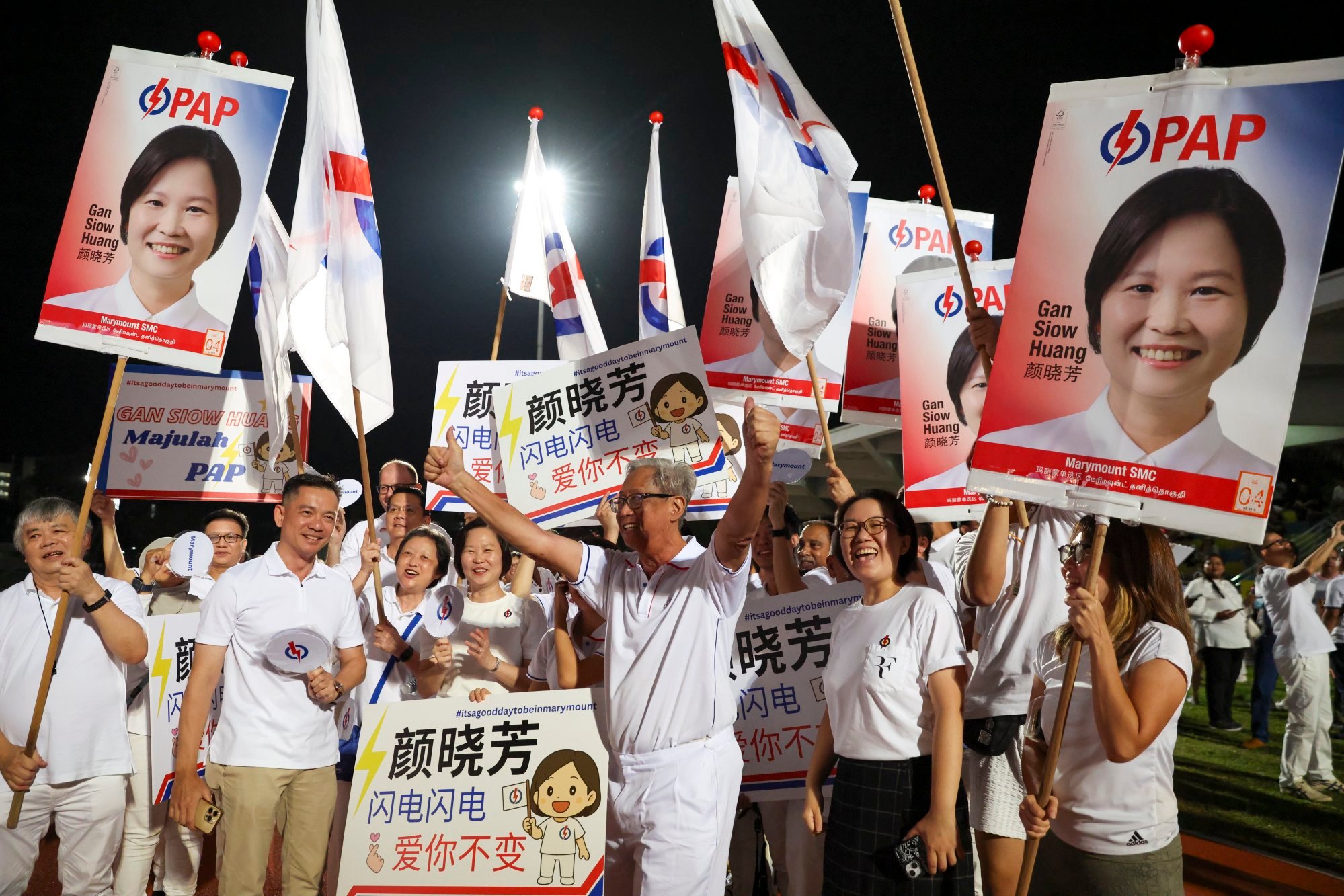
During the nine-day campaign period, Wong sought to keep the focus on the dangers of a changing world amid an escalating tariff war threatening the country’s open economy. He urged Singaporeans to give his government a strong mandate and the best possible team to weather the challenges ahead.
The WP hammered home the message of the need for a balanced parliament with its members able to check the government and help it improve its policies.
The party produced a slate of new candidates from both the private and public sectors that impressed observers who said it had narrowed the quality gap with the PAP. The new faces included senior counsel Harpreet Singh, who contested in Punggol, and Ong Lue Ping, a senior principal clinical psychologist at the Institute of Mental Health, and tech start-up chief operating officer Michael Thng, who both contested in Tampines.
Smaller opposition parties fared poorly in Saturday’s polls. The Progress Singapore Party (PSP), led by defector Tan Cheng Bock contested 13 of the total parliamentary seats but none of its candidates won more than 40 per cent of the vote. In 2020, it had come closest to winning in West Coast GRC, earning it two NCMP seats. The Singapore Democratic Party (SDP) contested 11 seats and it too failed to cross the 40 per cent mark.
PAP’s Inderjit Singh observed that “the Tan Cheng Bock effect” for PSP had waned among younger voters.
Despite the setback for the opposition, Teo from IPS said the WP had further entrenched its position in its 10 seats in Aljunied and Sengkang GRCs and Hougang.
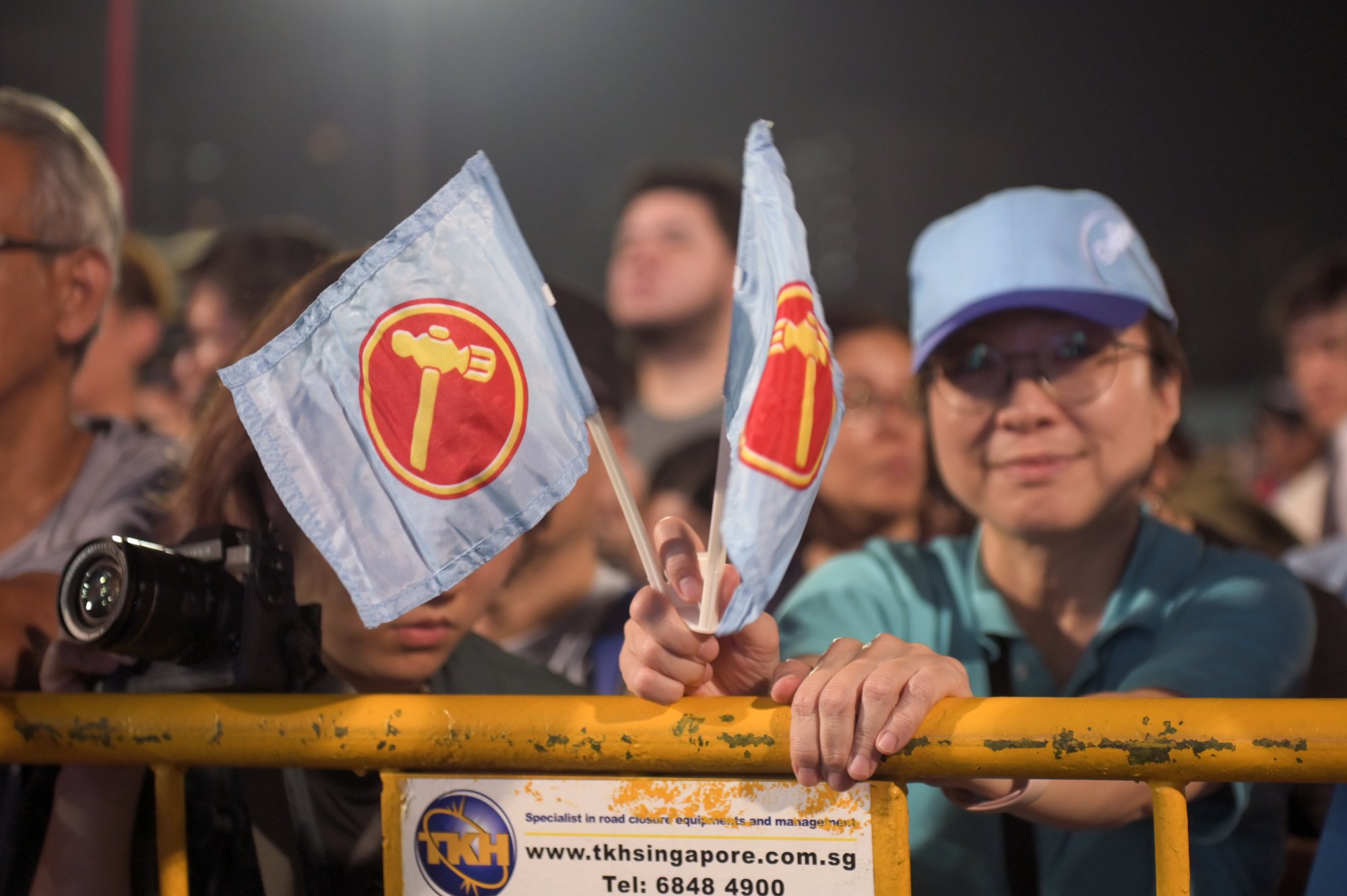
“WP has actually consolidated their hold on the places that they originally held with slight increases in vote share, so that is not really zero inroads for the opposition. But of course this is the only party that has managed to do so.”
Before Saturday’s results, the PAP had seen a slow but steady decline in the polls. In the last 2020 general election held during the Covid-19 pandemic, the party’s vote share fell to 61.24 per cent from the 69.86 per cent share in 2015. In 2011, it scored its lowest post-independence vote at just 60.1 per cent.
Looking ahead, Wong described Singapore as an “underdog” in the international arena, stressing that the real contest was not between the PAP and the opposition but Singapore and the “turbulent world and the multitude of challenges facing us in this contest”.
“Singapore is the underdog we have always been, and we will continue to be, despite what we have achieved today so to improve our chances, we cannot afford to fight one another,” he said.